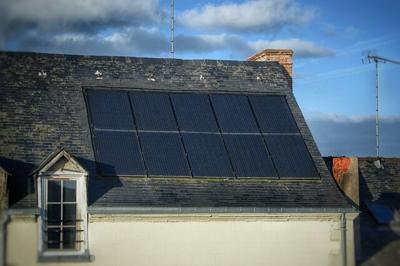
Climate Crisis, when people read these words online or hear about them in the news, it is hard not to consider their carbon footprint. More and more cars are going electric, and there are both state and federal financial incentives for people to go green. For homeowners, one of the most accessible investments they can make that will also reduce their carbon footprint is to go solar. Using solar panels to power a home is not new, but the technology has improved, and so have the incentives. Before making the switch, homeowners should take a moment to weigh the pros and cons of installing solar panels on their homes. We will review three pros and cons to solar and whether they can be covered under a home warranty.
Home Warranty and Solar Panels, Are They Covered?
Homeowner's insurance can be some of the best money any homeowner will spend on their home, especially when the unexpected happens. For example, adding solar panels to a home can be a costly investment. Although the durability of solar panels has increased over the years, no one wants to be stuck with unexpected repair and maintenance bills. Fortunately for homeowners looking to upgrade their homes by installing solar panels, home warranties will cover them without significantly adding to their home warranty cost. In addition, once a solar panel has been attached to the roof of a home, it becomes part of the house, and most home warranties will cover them without needing to add any unique language or plan add ons.
Pros
Most solar systems for homes use photovoltaic panels to capture the energy from the sun and turn it into electricity. When installed on the roof of a house, they can capture enough energy to meet all of a home's energy needs. Batteries attached to the system allow the energy captured to be available at night and on cloudy days. There are many benefits to going solar, three of which are;
· Free Energy - With solar energy, the high costs are in the panels and installation. Once installed, the energy from the sun is free. The free "fuel" captured from the sun's rays will save homeowners money on their utility bills, and sometimes excess energy can be sold back to the grid for use in other homes; this sale is represented as a credit on the homeowner's electric bill.
· Financial Incentives - Renewable energy is hot right now, and there are federal tax incentives for individuals who choose to invest in solar. There may be state and local incentives as well, so homeowners should look into those as well.
· Increased Home Value - Solar is desirable right now in the housing market. Having them can increase a home's resale value.
Cons
· Expensive - Even with federal tax credits and state and local incentives, the initial investment in solar can be expensive to install, and it will take years to recoup the initial investment.
· No Sun - No matter where a home is located, there will always be times of day when the sun is not shinning enough to generate energy efficiently. The energy can be stored in batteries to use when needed, but batteries add to equipment and installation costs.
· You Can't Take It With You - Once a system is installed on a home, that system is there for life. When homeowners move, it is not practical to move the solar panels with them, so homeowners wanting to drive will have to settle for increased value in the sales price of their home.
Going solar may not be the right move for all homeowners. However, those that can afford to invest in their home should seriously consider making the switch. Choosing to invest in renewable energy can be great for your long-term budget and the planet.


(0) comments
We welcome your comments
Log In
Post a comment as Guest
Keep it Clean. Please avoid obscene, vulgar, lewd, racist or sexually-oriented language.
PLEASE TURN OFF YOUR CAPS LOCK.
Don't Threaten. Threats of harming another person will not be tolerated.
Be Truthful. Don't knowingly lie about anyone or anything.
Be Nice. No racism, sexism or any sort of -ism that is degrading to another person.
Be Proactive. Use the 'Report' link on each comment to let us know of abusive posts.
Share with Us. We'd love to hear eyewitness accounts, the history behind an article.